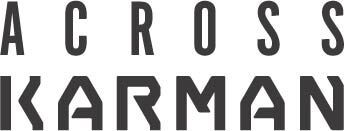Operation Moonglow: A Political History of Project Apollo
On 20 July 1969, over half the world’s population witnessed Neil Armstrong’s first step on the Moon. While often remembered as a scientific and technological feat, the ambitions of the Apollo program aimed far beyond the Moon. Through spaceflight, America sought to win hearts and minds, foster alliances, and shape the political trajectories of newly independent nations. Drawing on a rich array of untapped archives and firsthand interviews, Operation Moonglow knits together a story of politics and propaganda; diplomacy and spaceflight; decolonization and globalization to reveal the political forces that not only sent humans to the Moon but also attracted the largest audience in history.
Teasel Muir-Harmony is the curator of the Apollo Collection at the Smithsonian National Air and Space Museum. She earned a PhD from MIT’s Program in History, Anthropology, and Science, Technology, and Society. Muir-Harmony is the author of Apollo to the Moon: A History in 50 Objects (2018), a co-editor and contributor to a special issue of the Pacific Historical Review on science and technology in Japanese-U.S. relations (2019), and an advisor to the television series Apollo’s Moon Shot. She co-organizes the Space Policy & History Forum, serves on the Executive Council of the Society for the History of Technology, and teaches in Georgetown University’s Science, Technology and International Affairs program.
The Washington History Seminar is co-chaired by Eric Arnesen (George Washington University and the National History Center) and Christian Ostermann (Woodrow Wilson Center) and is organized jointly by the National History Center of the American Historical Association and the Woodrow Wilson Center's History and Public Policy Program. It meets weekly during the academic year. The seminar thanks its anonymous individual donors and institutional partners (the George Washington University History Department and the Lepage Center for History in the Public Interest) for their continued support.
Speaker

Moderators

Woodrow Wilson Center

Professor of History, The George Washington University. Director, National History Center of the American Historical Association.
Panelist

Hosted By

History and Public Policy Program
A global leader in making key archival records accessible and fostering informed analysis, discussion, and debate on foreign policy, past and present. Read more


Science and Technology Innovation Program
The Science and Technology Innovation Program (STIP) serves as the bridge between technologists, policymakers, industry, and global stakeholders. Read more


